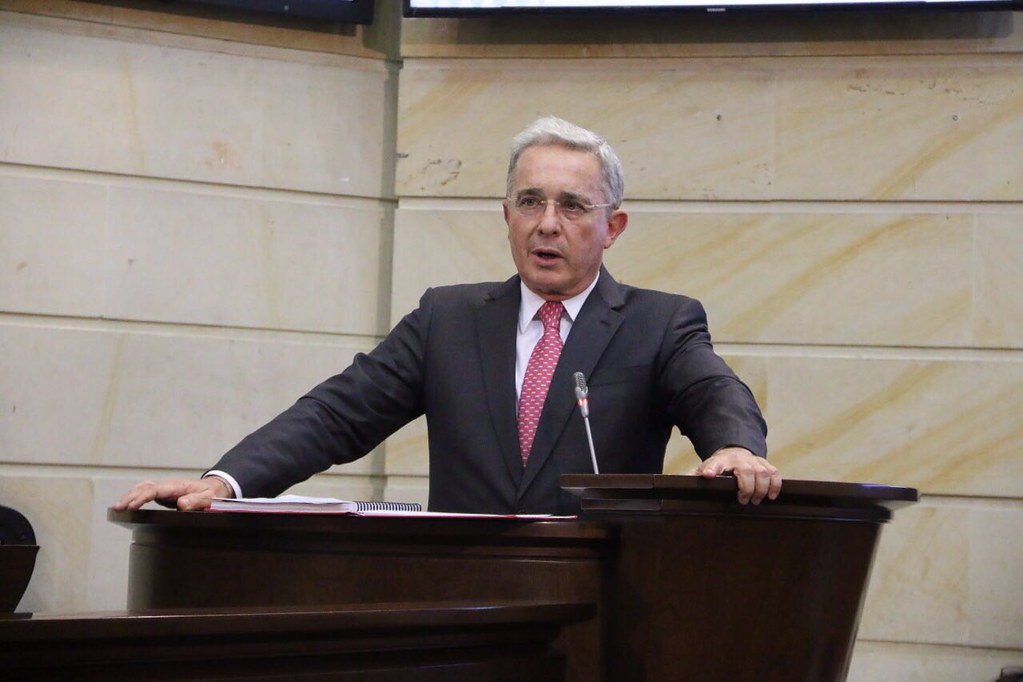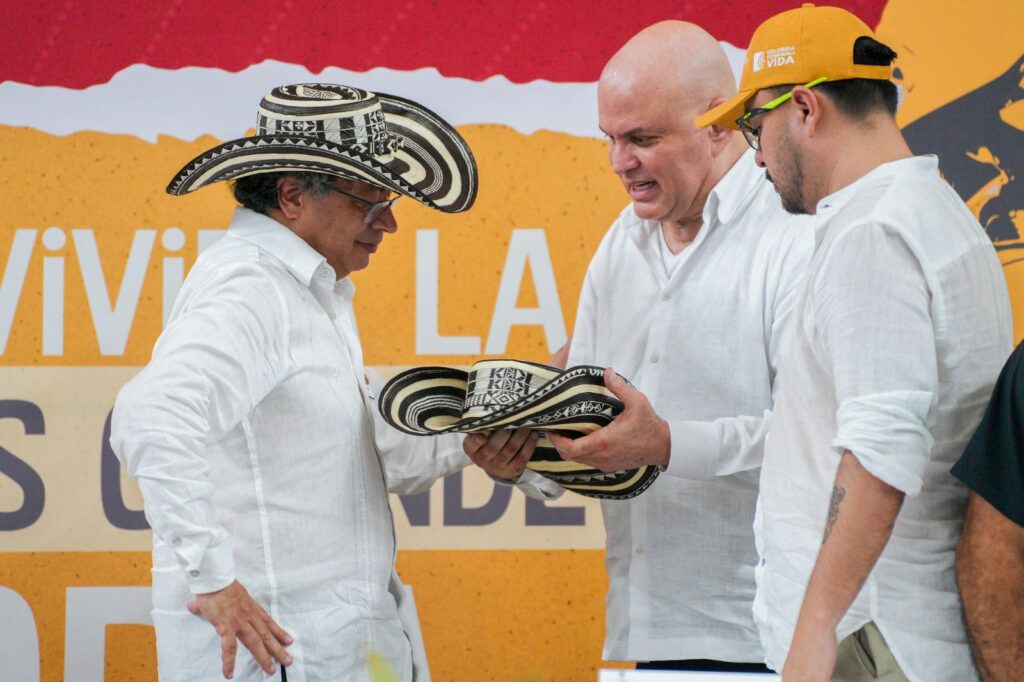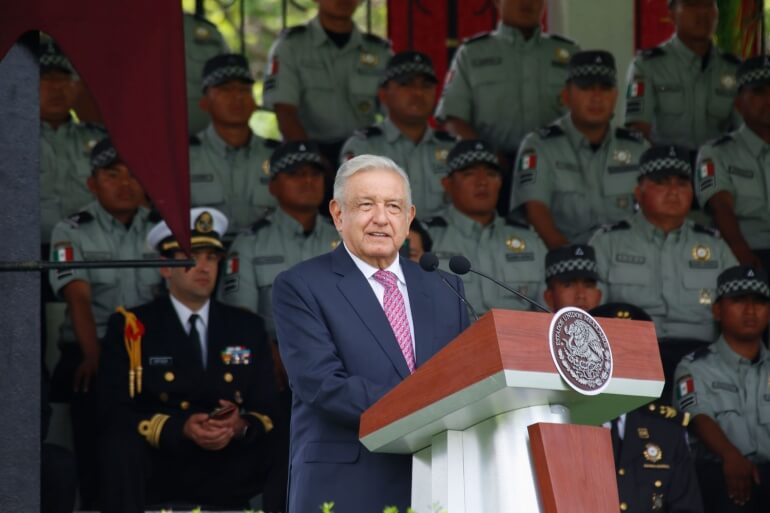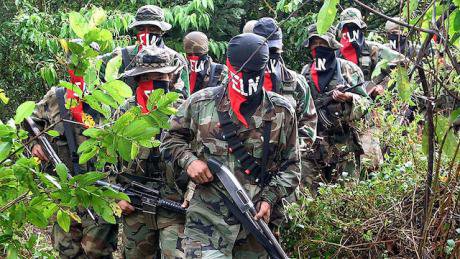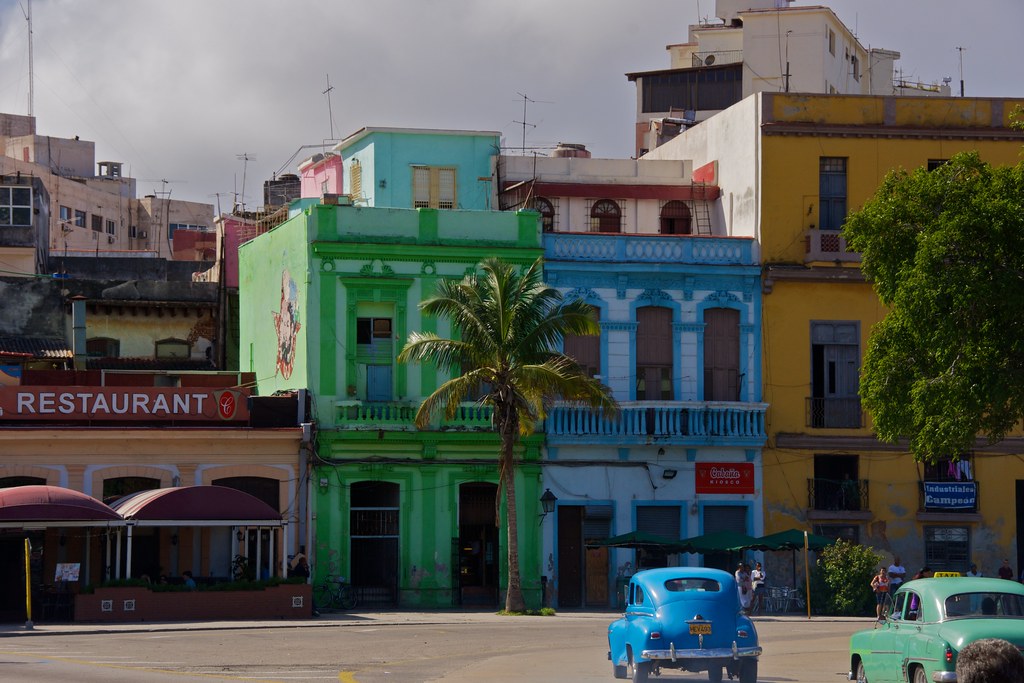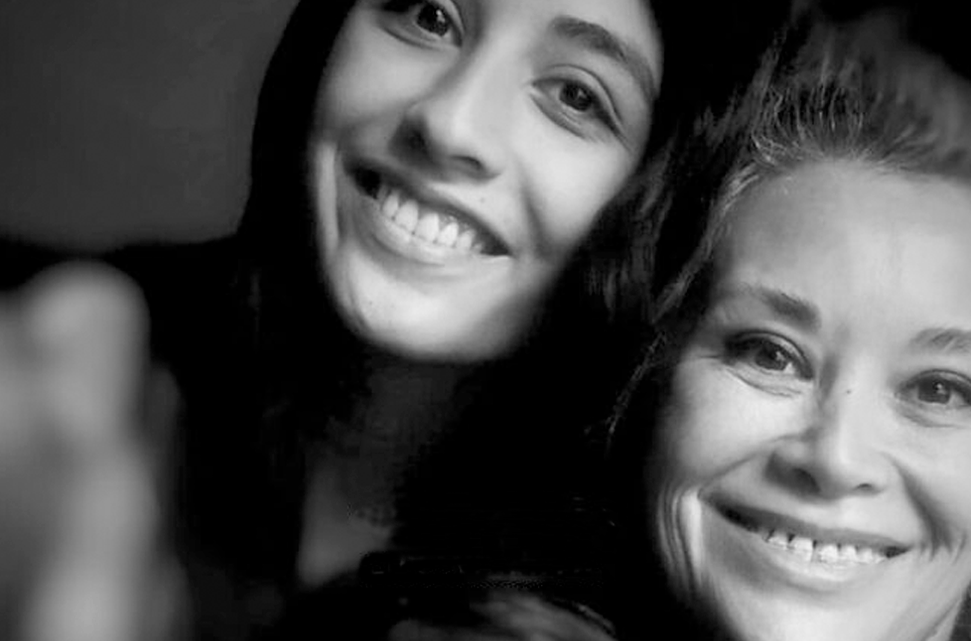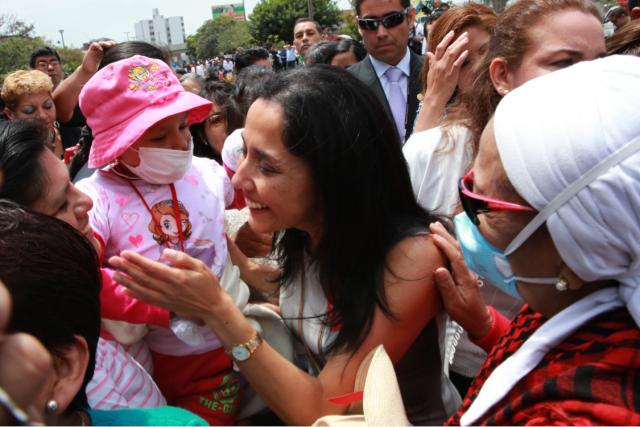Medellín, Colombia – Álvaro Uribe Vélez, who served as Colombia’s president from 2002 to 2010 and is arguably one of the most influential figures in the country’s modern history, was found guilty of witness tampering in a Bogotá court on Monday, becoming the first former head of state to be convicted of a crime in Colombia.
In total, proceedings related to the case that resulted in his final conviction spanned 13 years and became a through line in Colombian politics.
In 2012, leftwing Senator Iván Cepeda said publicly that Uribe had formed the Metro Bloc (Bloque Metro) of right-wing paramilitaries during the height of Colombian violence in the late 1990s. Uribe then sued Cepeda for libel, but in 2018, the courts dropped the suit and opened a new investigation into Uribe related to witness tampering and bribery in the lawsuit. Court hearings, lasting months, culminated on Monday with two guilty verdicts and sentencing is expected for later this week.
The charges against Uribe
Uribe, 73, stood accused of three crimes: bribery in criminal proceedings, procedural fraud, and simple bribery, and was found guilty of the first two.
Judge Sandra Heredia found that the former president had employed one of his lawyers, Diego Cadena, as a proxy to bribe imprisoned former paramilitaries to provide false testimony that disavowed his alleged involvement in the creation of the Bloque Metro (Metro Bloc) of right-wing paramilitaries in Medellín and rural areas in the Antioquia department.
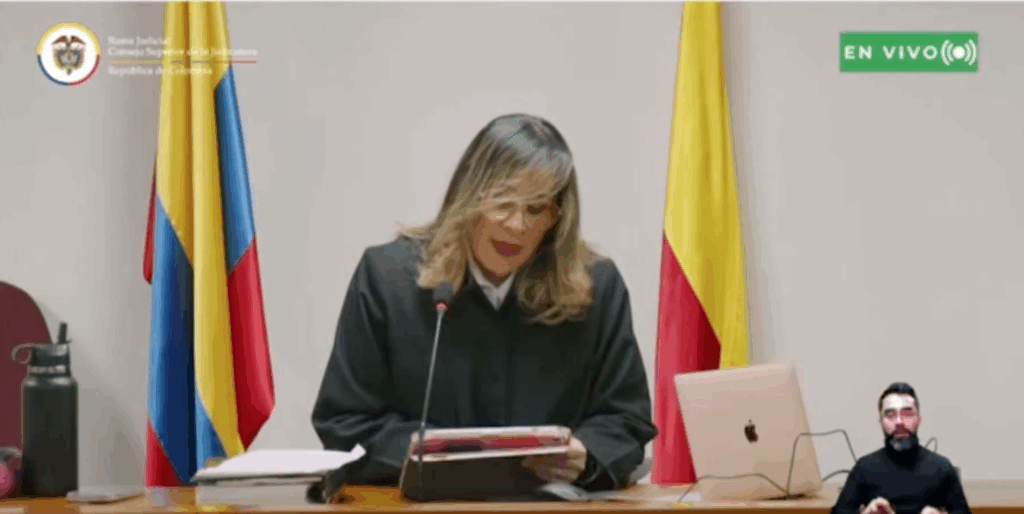
Image Source: Camilo Romero via X.
Although the former president’s defense team argued that Cadena had acted independently and without Uribe’s knowledge, the judge found that the politician was the “determiner” behind his lawyer’s actions. She further concluded that, regardless of whether Uribe directly instructed Cadena, there was a “deliberate omission” on his part that enabled the crime.
For the charge of procedural fraud, Heredia also found Uribe guilty of having promoted the presentation of false or manipulated evidence to influence a decision of the Supreme Court. The judge found that Uribe sought the false testimony of Juan Guillermo Monsalve, a low-ranking member of what would later become Bloque Metro in the late 1990s.
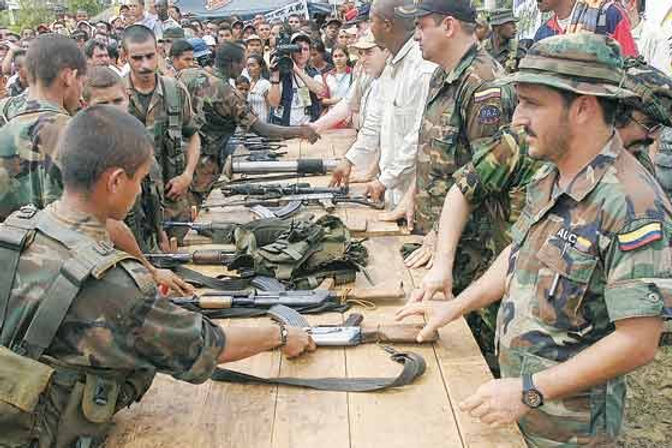
Image Source: Fundación Paz y Reconciliación
Monsalve gave the court secret recordings of Cadena’s conversations with imprisoned ex-paramilitaries in Bogotá’s La Picota prison, where the disgraced lawyer offered them legal benefits in exchange for testifying in Uribe’s favor. Additionally, he also reportedly testified — in a statement which hasn’t fully been made public — that Cadena and other Uribe allies had visited him in prison and tried to bribe him to retract his claims about the former president’s ties to the Metro Bloc, as per Colombian news outlet La Silla Vacía.
Uribe, however, was able to avoid conviction for the crime of simple bribery related to Cadena’s effort to bribe Hilda Niño, a former prosecutor on Colombia’s Justice and Peace tribunal who was jailed in 2020 for accepting bribes from drug traffickers to provide them leniency meant for demobilizing paramilitaries. Uribe’s lawyer had allegedly sought her to secure damning testimony against Cepeda.
According to Colombian radio station Caracol Radio, the difference between the two bribery charges lies in the nature of the act: the first involves bribing someone who has knowledge of a criminal offense, while the second refers to offering money, goods or benefits to persuade someone to carry out an act that benefits the briber.
Uribe’s argument
Throughout the trial, Uribe’s lawyers have argued that separate audio recordings obtained by the court via a wiretap on Uribe’s personal cell phone should not have been admitted as evidence. However, Judge Heredia ruled the recordings admissible, explaining that authorities initially intercepted the politician’s phone by accident while investigating a separate case and then followed proper legal procedures to continue the wiretap. (These recordings are not related to Monsalve’s secret recordings).
“To claim that tracking [phone] numbers not originally linked to a case is illegal would open the door to weakening the justice system. It cannot be said that this action was carried out in bad faith, and the judicial investigator acted properly,” Heredia said in the livestreamed hearing on Monday.
However, the judge also commended Uribe Vélez’s disposition to appear before the court and expressed respect for the trial.
“Despite the honorable positions you have held, and the fact that you now sit in the most difficult seat in this trial, as the accused, you have always done so with great dignity and courtesy,” she told Uribe Vélez at Monday’s hearing.
Uribe, who is perhaps Colombia’s most influential political figure in the past quarter century and a strong ally of the United States, attempted to halt the case various times over the years. First in 2019 citing the illegal wiretapping of his phone; again in 2023 for alleged lack of evidence; in 2024 his defense claimed a procedural error; and in 2025 his lawyers argued that their client’s presumption of innocence had not been respected.
Throughout, Judge Heredia has repeatedly denied pleas from the politician’s lawyers, and claimed to maintain an unbiased and fact-focused approach to the evidence presented before her court.
“Today, this court does not judge a name. Rather, it decides over facts, and this distinction is vital. The ruling’s meaning […] does not have a political orientation nor is it influenced by sympathies or antipathies,” she said on Monday.
What comes next?
Uribe is a polarizing figure in Colombia. He is at once revered for fighting leftist guerilla insurgencies like the Revolutionary Armed Forces of Colombia (FARC) and restoring security to much of Colombia, while also being criticized for human rights atrocities carried out during his administration.
His supporters have taken to social media to support the former president and have equated the trial to that of a witch hunt.
María Fernanda Cabal, a Senator from Uribe’s Democratic Center party, called the judge’s decision “politicized justice.”
“It was not a ruling against former President Uribe; it was a monument to judicial arbitrariness and the politicization of justice. But this doesn’t end here, because there will be an appeal and, if necessary, a cassation ruling,” she stated on social media.
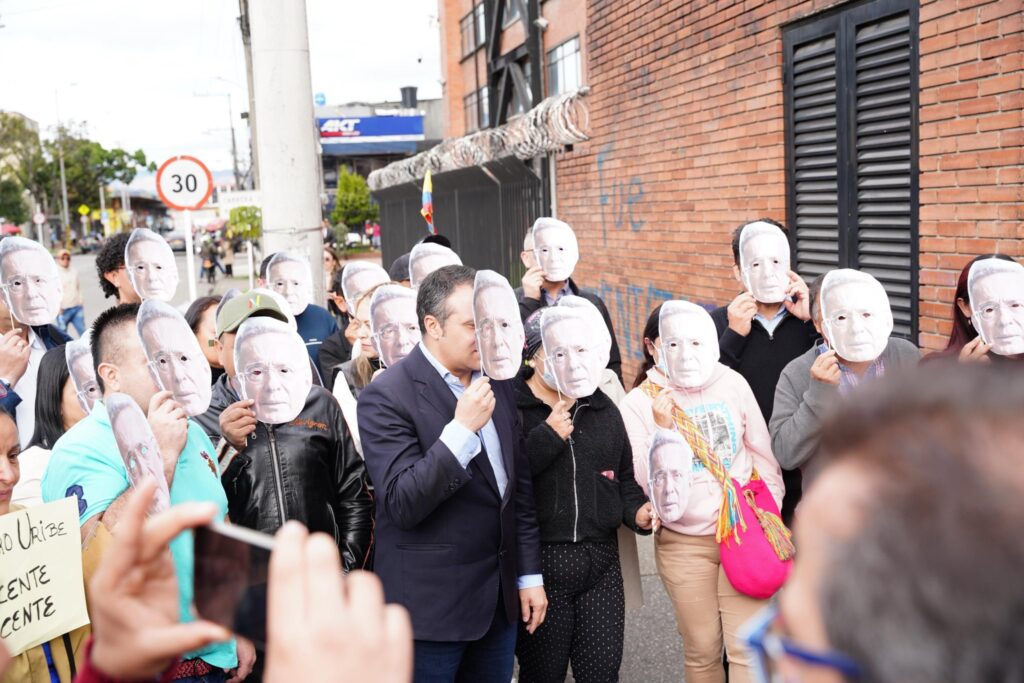
Image source: David Rozo via X.
Colombia’s President Gustavo Petro, the country’s first leftist president and a former M-19 guerrilla, defended the ruling as the pinnacle of judicial independence, and urged the State to provide protection for Judge Heredia.
“It is the government’s duty to guarantee the protection of the judge and her family, whatever the ruling might have been. In a democratic government, judges are not pressured; they are protected in freedom,” he asserted.
The former president’s fate remains undetermined. Judge Heredia is expected to sentence Uribe on Friday, August 1. The crimes he was found guilty of carry a sentence ranging from six to 12 years in prison.
Following Friday’s sentencing, the case will then be transferred to the Superior Tribunal, which must either uphold or overturn Judge Heredia’s ruling before October 8, the date on which the case reaches its statute of limitations.
Beyond this, the politician can also appeal the decision, which his current lawyer, Jaime Granados, confirmed he would do.
“Former President Uribe’s presumption of innocence remains intact, and there are still available resources. Thus, the defense team announces that the ruling will be appealed before the Superior Tribunal of Bogotá, as the law allows. And if necessary, the case will be referred to the Criminal Cassation Chamber of the Supreme Court of Justice,” Granados stated.
Featured image credit:
Image: Former President Álvaro Uribe in Senate plenary session
Source: Democratic Center via Flickr
License: Creative Commons Licenses


